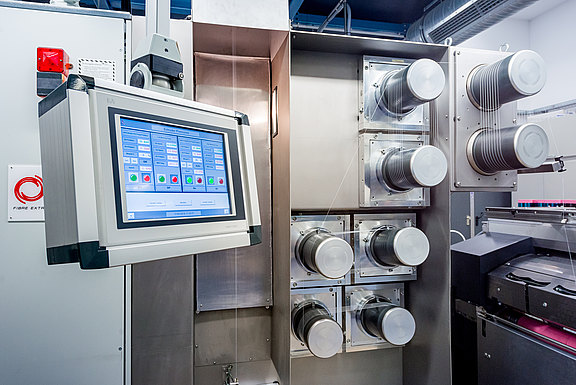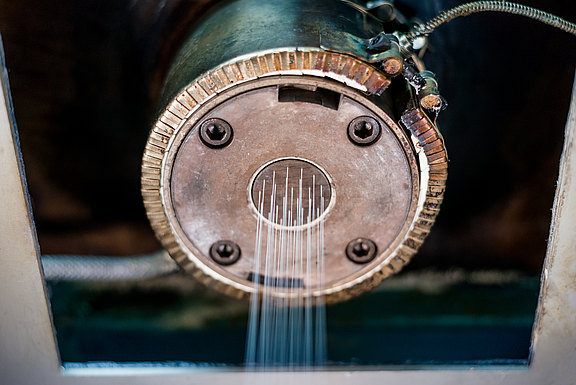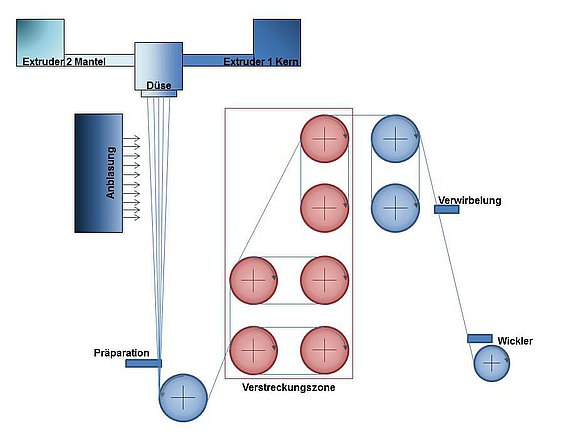With the melt spinning machines available at the TITK, it is possible to process a variety of thermoplastic polymers into mono- and multifilaments. The processing capacity ranges from laboratory scale with a few grams to an industry-analogue pilot plant with throughputs of several kilograms per hour. In addition to the usual engineering plastics, "high-tech" polymers with high melting or softening temperatures such as PEEK, PPS, PMMA or LCPs can also be spun.
The design of the systems as a bicomponent spinning stand makes it possible to realise structured cross-sections such as side-by-side, core-sheat or islands-in-the-sea with different polymers or filling degrees.
At the institute, additives and fillers are developed or modified, which give the filaments novel properties, e.g. with regard to their antibacterial effect, electrical conductivity (PTC) or marker effect for product protection, in order to be used in this way in "smart" textiles.
Research and development
Technology development, product testing as well as polymer modification and plastic additives for mono- and multi-filaments
on the basis of
- "High-tech" polymers with high melting or softening temperatures such as polyphenylene sulphide, polysulphone, PEEK, PMMA, polycarbonate, LCPs, etc.
- polyamides, polyesters, polyethylene, polypropylene, thermoplastic elastomers
- Biopolymers such as polyglycolide, polylactide (PLA), polyhydroxybutyrate (PHB), polycaprolactone
Services
- Production of mono-, hollow- as well as multi-filaments (LOY, POY, FOY/FDY)
- Bicomponent filaments with variable cross-sections
- Winding speed up to 6000 m/min
- Production capacity up to 8 kg/h
- Determination of the processing properties of thermoplastic polymers, copolymers, polymer blends
- Determination of the influence of additives during spinning
- Product and preparation tests
- Production of filaments up to 100 kg
- Film extrusion with small polymer quantities
Development and production of filaments for additive manufacturing processes
Filaments for FDM printers can be produced on the basis of a variety of thermoplastic materials such as ABS, PLA, PETG, PO and can be provided with various fillers for electrical conductivity, antibacterial effectiveness or to increase strength. Diameters of both 1.85 and 2.75 mm can be realised.



